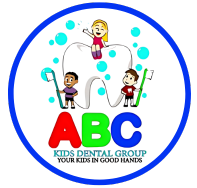How Baby Bottles Affect Your Child’s Teeth?
Learn how prolonged baby bottle use can impact your child’s dental health, from increasing the risk of tooth decay to affecting oral development. Discover tips for protecting your child’s smile and transitioning away from the bottle.

How Baby Bottles Affect Your Child’s Teeth
As a parent, you want the best for your baby, and that includes ensuring their health and well-being. One aspect that is often overlooked but plays a significant role in your child’s dental health is the use of baby bottles. While they are convenient and necessary for feeding, improper use or excessive bottle-feeding can have lasting effects on your child's teeth. In this blog, we will explore how baby bottles affect your child's teeth and what you can do to ensure their smile stays healthy.
1. Tooth Decay: The Risk of Bottle Caries
One of the most significant concerns associated with baby bottles is the risk of early childhood tooth decay, commonly referred to as bottle caries or nursing bottle syndrome. This occurs when sugary liquids, such as milk, juice, or formula, stay in contact with your baby's teeth for prolonged periods. When the child falls asleep while drinking from a bottle, the liquid can pool in their mouth, promoting the growth of harmful bacteria that feed on sugar, leading to tooth decay.
Tip: Always avoid putting your baby to bed with a bottle containing anything other than water. This helps minimize the risk of tooth decay.
2. Changes in Dental Development
Prolonged bottle-feeding, especially beyond the age of one, can lead to dental issues related to the development of the teeth and jaw. When a child continues to suck on a bottle past the recommended age, it can interfere with the natural development of their teeth and bite. This is particularly true if the child uses the bottle to comfort themselves rather than for feeding. The constant pressure on the teeth from bottle-sucking can lead to:
- Misalignment: Prolonged bottle use can contribute to malocclusion, or misalignment of the teeth. This can result in an overbite or open bite, which may require orthodontic treatment later in life.
- Tooth Crowding: The continued sucking motion associated with bottle use can crowd the teeth, making it harder for them to align properly.
Tip: Try to wean your baby off the bottle by their first birthday. Use a cup to encourage better oral habits.
3. Development of Oral Motor Skills
The act of drinking from a bottle is different from drinking from a cup, and it doesn’t promote the development of the oral motor skills needed for healthy chewing and speaking. Breastfeeding or drinking from a cup requires more coordination and muscle control, which helps strengthen the muscles used in speech and eating. Extended bottle-feeding can delay the development of these essential skills.
Tip: Introduce a sippy cup at around 6-9 months to help your baby develop proper oral motor skills and move away from the bottle.
4. The Importance of Cleaning Baby Bottles
Another important factor in your child's dental health is how often and thoroughly you clean their bottles. Baby bottles can harbor bacteria if not properly washed, which can contribute to tooth decay. Bottles that are not cleaned regularly may also develop mold or mildew, especially if they are left wet for long periods.
Tip: Make sure to wash bottles thoroughly after each use, paying attention to the nipple and any other parts. Sterilizing bottles once a day can also help keep harmful bacteria at bay.
5. Weaning Off the Bottle
The transition from bottle to cup is an important milestone in your child’s development. Not only does it help with dental health, but it also fosters independence. The American Academy of Pediatric Dentistry (AAPD) recommends weaning off the bottle by 12 to 18 months to reduce the risks of tooth decay and oral developmental issues.
To help make this transition smoother, try:
- Offering water in a sippy cup or regular cup
- Gradually decreasing the amount of time your child uses the bottle
- Using positive reinforcement when they use a cup
6. Signs of Tooth Decay in Babies
It’s essential to keep an eye on your child’s teeth for any signs of decay or damage, especially if they’ve been using a bottle for an extended period. Early signs of tooth decay can include:
- White spots or discoloration on the teeth
- Sensitivity to hot or cold foods
- Visible holes or pits in the teeth
If you notice any of these signs, make an appointment with your child’s pediatric dentist for an evaluation. Early intervention can prevent more severe dental problems down the road.
What's Your Reaction?























